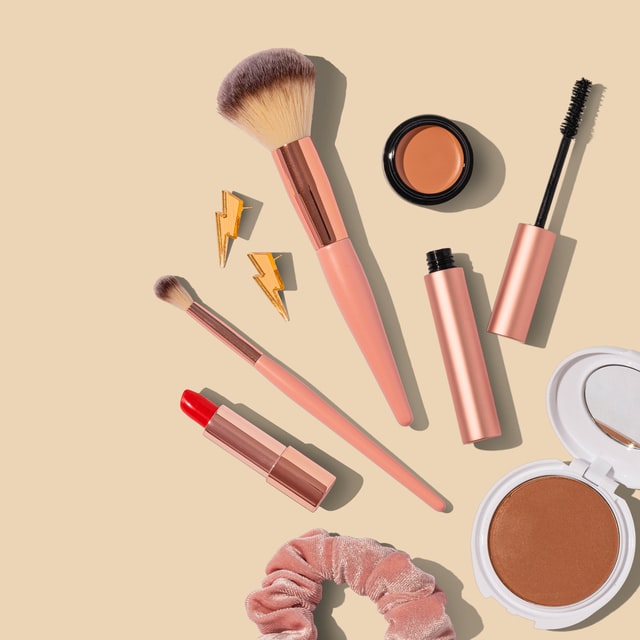Do you have trouble falling asleep/continued insomnia? Have you tried all the tricks in the book and yet your sleeping problem persists? Do you find yourself lying awake at night, unable to drop off and instead, constantly worrying about things that may or may not be happening in your life?
Falling asleep can be difficult, and this can throw off the internal clock of your body which controls sleep and wakefulness. Most of us don’t realize how important sleep is until we miss it, but there are some basic things you can do to improve your sleep patterns, and the most important of them all is to turn off your phone at night.
It’s frustrating to be unable to sleep, and it can leave you gloomy the next day. Here are some easy tips to fall asleep as quickly as possible, and avoid sleep disorders.
Make sure you get enough exercise during the day
Exercising regularly is good for your health and well-being, but it can also help you sleep better at nighttime. A brisk walk or an easy jog will make it easier to fall asleep while running in place before bed will give you a better chance of improving your sleep hygiene.
Make sure to exercise during the day, but don’t exercise right before bed. Aerobic exercise can have a sleep-inducing effect on some people, while others find that it has the opposite effect.
A good way to find out if aerobic exercise helps you fall asleep is to do your usual routine of physical activity in the morning, then try to sleep later that night. If you find yourself unable to fall asleep, then it is probably because of the exercise you just did.
When exercising before bedtime, take a break after 45 minutes or so and then go back for another 45 minutes. Your body will be tired by the end of this exercise, so you will be more likely to fall asleep after you are done.
Keep an eye on what you eat and when you eat it
The timing of your meals can affect the quality and quantity of sleep you get. Avoid eating a heavy meal within four hours before bedtime, as this will make it harder for you to fall asleep. A light snack at least three hours before bed is ideal.
According to a series of studies, although a high-carb diet can help you fall asleep sooner, it won’t be comfortable to sleep. High-fat foods, on the other hand, may induce better and more peaceful sleep (source).
In addition, several new and old studies have found that a high-carb/low-fat diet reduces sleep quality when compared to a low-carb/high-fat diet.
This was evident in the case when the high-carb/low-fat and low-carb/high-fat diets both had the same number of calories (source).
Try a hot bath or shower
Warm water can help you relax and fall asleep faster, as well as improve your sleep quality. In addition, it helps you get rid of tension and improves blood circulation in the body. This way, you can relax your muscles and lower the number of stress hormones in your body. A warm bath or shower will also help to reduce muscle tension throughout the day, which is a key factor for relaxation.
Reduce your caffeine intake and replace it with a calming beverage
Avoid coffee, cola, and other caffeinated drinks. This is because caffeine will keep you awake, even after your body gets used to it. Caffeine can cause anxiety, jitters, and insomnia. Try not to drink more than three cups of coffee a day. Also avoid drinking alcohol, as it will disrupt your sleep.
Replace coffee intake with a calming beverage such as chamomile tea, which is known to be relaxing. Chamomile has been used for centuries to treat insomnia and improve sleep quality. It is also considered one of the best natural sedatives because it acts as an anxiolytic (anxiety-reducing) and a mild sedative.
Chamomile tea contains anti-inflammatory compounds, which help you relax and lower your stress levels. It also has a relaxing effect on the central nervous system (CNS). Its antioxidant properties make it an excellent beverage for insomnia sufferers because of its ability to reduce the oxidative stress caused by stress.
Consider aromatherapy
Aromatherapy is a scientifically proven method of healing that uses scents and essential oils to promote health. The olfactory system in the human body is connected to the limbic system, which processes emotions. Because of this connection, aromatherapy can help alleviate emotional distress from physical pain.
There are numerous types of essential oils, each with a unique aroma and function. Some of the most common essential oils include lavender, peppermint, eucalyptus, rosemary, lemon balm (Melissa officinalis), geranium (Pelargonium graveolens), chamomile, ginger (Zingiber officinale), and thyme.
Essential oils can be used to treat insomnia by inhaling them through a diffuser or massaging them into the skin. Inhaling essential oils is considered an active form of aromatherapy while applying them to the skin is passive.
Spice up your diet
A number of spices are known to have sedative properties. These include cardamom (Elettaria cardamomum), ginger (Zingiber officinale), black pepper (Piper nigrum), and peppermint (Mentha piperita). You can use these spices in cooking or drink them as tea. They are also available in capsule form for purchase over the counter.
Breathing, yoga, mindfulness
The body’s breathing system is closely connected to the nervous system. By practicing deep breathing, you can help alleviate stress and anxiety while promoting relaxation.
Deep breathing is a type of meditation that increases oxygen in the blood and brain, which promotes calmness and clarity of thought. Deep breaths may also reduce the effects of stress by reducing their ability to influence your body’s endocrine system. Deep breathing is believed to help reduce anxiety by relaxing the muscles of the diaphragm, which controls respiration.
Deep breathing can be practiced through simple techniques such as yoga or tai chi. It can also be done by using a specially designed apparatus known as a rebreather. This machine has the ability to recycle exhaled air, thereby allowing you to take deep breaths without having to worry about running out of oxygen. Deep breathing is also beneficial for your mental health because it can help reduce stress and anxiety by increasing blood flow throughout the body. Deep breathing is considered an effective treatment for asthma, bronchitis, and emphysema.
Breathing is a great way to get started with relaxation techniques if you’re new to them or if you’re having trouble focusing on other things like imagery or mantras.
Reduce the temperature
As you sleep, your body temperature varies. When you lie down, your body cools down, and when you get up, it warms up (source)
You can have trouble falling asleep if your room is too hot. It may be beneficial to set your temperature to a chilly setting of 60–67°F (15.6–19.4°C) (source).
Because everyone’s tastes differ, pick the temperature that fits best for you.
Relax by listening to soothing music
Listening to music can help you relax and is a way to relieve stress. Music is an art form that has the power to evoke emotions and memories, impacting our mood and influencing how we feel within ourselves and with others.
Music has the ability to calm your mind, body, and spirit. It can help you sleep better by lowering your heart rate and reducing anxiety levels. Music is also an effective tool for meditation because it helps promote inner peace through its powerful effects on moods and emotions.
Soothing music is ideal for helping you relax, unwind, and sleep better. You can use it to help you fall asleep or to promote relaxation before bedtime.
Use a humidifier
If your bedroom gets too dry, the heat may wake you up. A humidifier can be helpful in helping you fall asleep and stay asleep throughout the night.
Choose a temperature that is neither too hot nor too cold, and try to keep it at about 70°F (21°C). You should also avoid putting your face close to the air duct, as it can cause dryness.
When you use a humidifier, the moisture in the air will be sucked into your room and then released into the air through your vents or wall outlets.
Utilize the 4-7-8 breathing technique
Dr. Andrew Weil’s “4-7-8” breathing method is a simple yet effective breathing technique that promotes peace and relaxation, and it might also help you relax before going to bed (source).
It comprises of a breathing rhythm that soothes the nervous system and is based on breath control techniques learned from yoga. It can be used if you are nervous or upset.
The steps are as follows:
- To begin, insert the tongue tip behind your top front teeth.
- Make a “whoosh” sound as you exhale entirely through your mouth.
- Keep your mouth closed and count to four while inhaling through your nose.
- Pause your breath and count to seven in your head.
- Exhale completely through your mouth, generating a “whoosh” sound and silently counting to eight.
- This cycle should be repeated at least three more times.
This technique can be used as a form of relaxation, to induce sleep, improve quality of sleep, or if you have stress.
Purchase a mattress with the appropriate firmness.
Mattress firmness is not a one-size-fits-all situation. Different people will sleep better on different levels of hardness or softness of a mattress, based on their sleep position, activity level, body mechanics, age, and other considerations. If you want to obtain the finest night’s sleep, choose a mattress that fits your body type and sleeping habits.
Change your sleeping position
Your body position during the night may influence the quality of your sleep. The following are the three most common sleeping positions:
- Side
- Back
- Stomach
Back sleepers were thought to have a higher quality of sleep in the past. However, research has revealed that this may not be the optimal sleeping position, as it can cause obstructed airways, sleep apnea, and snoring.
Although personal tastes have a factor in selecting a sleeping position, the side position appears to be associated with better sleep quality (source).
Make a schedule
Creating a schedule for sleeping at night can help you fall asleep faster and stay asleep longer. A study conducted by the University of Chicago Medical Center found that an eight-hour sleep cycle, with three hours of light sleep followed by five hours of deep sleep, is optimal for most people.
If you can’t fall asleep within 20 minutes of going to bed, try making a schedule. For example, every night at 10:00 PM go to bed and get up at 6:00 AM the next morning. In this way, your body will have time to prepare for sleep by gradually reducing your activity level.
Try to stay away from naps during the daytime
Lack of sleep is a common problem faced by many people, and the effects may be detrimental. Some studies suggest that naps during the day cause you to be more tired and less productive at work or school, which can lead to lower academic performance. While short-duration naps have been related to increased alertness and well-being, perspectives on the impact of napping on nighttime sleep are divided.
If you want to see if naps are impacting your sleep, consider cutting them out completely or restricting yourself to a quick nap (30 minutes or less) earlier in the day.
Consider reading something
Reading could be an excellent way to unwind before going to bed. It appears that bedtime reading, at least for children, can help them sleep longer.
It’s crucial to grasp the distinctions between reading an e-book and reading a typical paper book, though. Blue light from electronic book readers suppresses melatonin production, and melatonin deficiency makes it difficult to fall asleep and leaves you fatigued the next day (source).
As a result, reading from a real book is recommended to help you relax and sleep better.
Consider taking sleep-inducing supplements
Certain vitamins can assist you in falling asleep more quickly, and they’ve been found to promote sleep by increasing the synthesis of sleep-inducing hormones or calming brain activity.
The following supplements can assist you in falling asleep:
- Melatonin. Melatonin is a hormone that your body makes organically, but can also be consumed as a supplement to help you sleep better. Sleep quality may be improved by taking 0.5–5 mg two hours before your planned bedtime, which for most people is approximately 8–9 p.m.
- L–theanine. The amino acid L-theanine has sedative effects. Although it hasn’t been proven to help with sleep, it may assist in relaxation. A daily intake of 400 mg appears to be effective.
- GABA is a kind of amino acid that is (gamma-aminobutyric acid). GABA is a chemical that is produced in the brain. It blocks specific transmitters and may aid in the relaxation of the central nervous system. Doses of 250–500 mg are advised, with no dose exceeding 1,000 mg.
- Magnesium. Magnesium aids in the activation of sleep-related neurotransmitters. Sleep has been demonstrated to improve with doses of up to 500 milligrams (mg) per day. It’s best to take it with food.
- 5-HTP (Hydroxytryptophan (5-hydroxytryptophan). The amino acid 5-HTP increases serotonin synthesis, which has been connected to sleep control. Insomnia appears to be treated effectively with doses up to 600 mg per day, administered once daily or in smaller doses.
Conclusion
Sleep can be a difficult thing to achieve, but there are a few things you can do to help make it easier on yourself. The more you know about how to fall asleep, the better your chances of getting a good night’s sleep.
In this article, we provide some useful tips and tricks for those who are looking to improve their sleeping habits.




